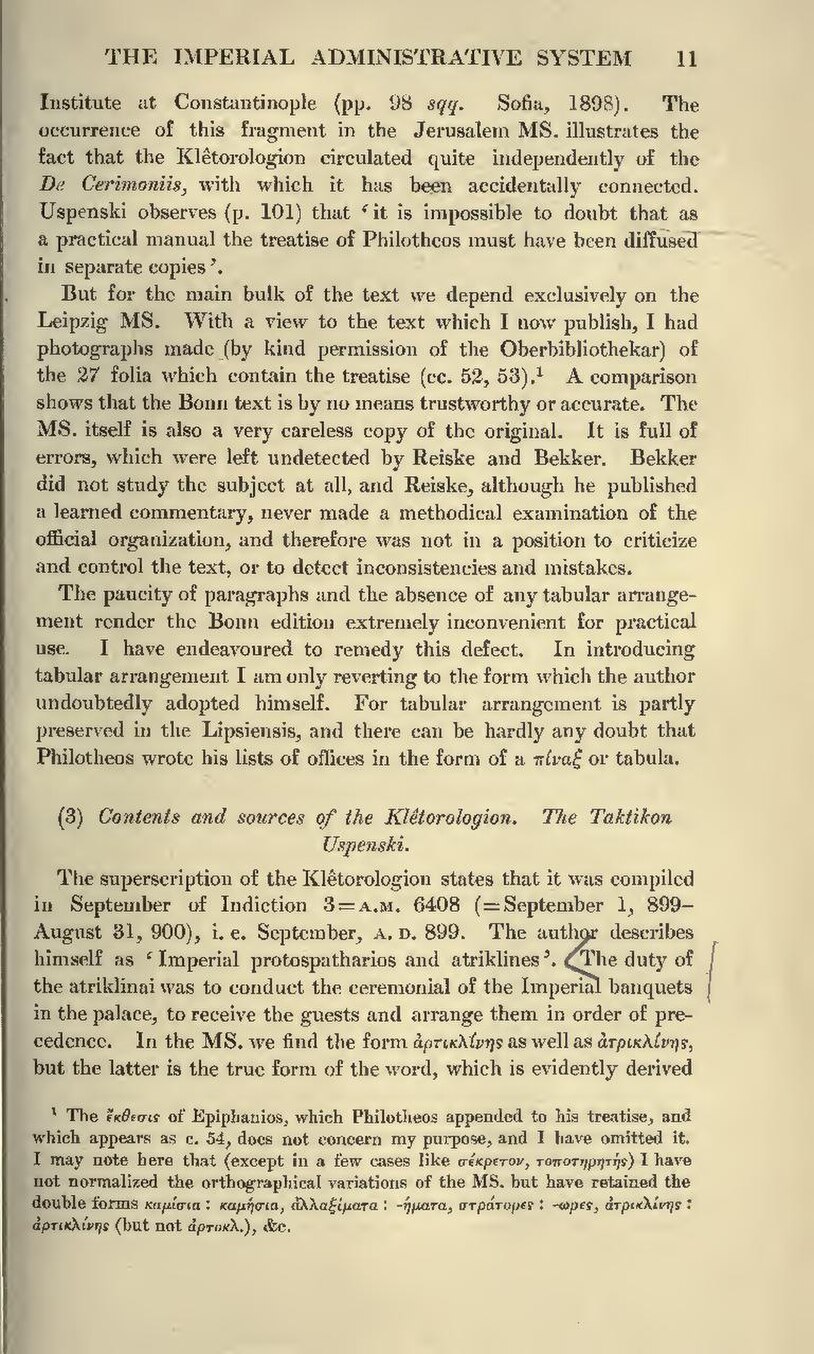Institute at Constantinople (pp. 98 sqq. Sofia, 1898). The occurrence of this fragment in the Jerusalem MS. illustrates the fact that the Klêtorologion circulated quite independently of the De Cerimoniis, with which it has been accidentally connected. Uspenski observes (p. 101) that 'it is impossible to doubt that as a practical manual the treatise of Philotheos must have been diffused in separate copies'.
But for the main bulk of the text we depend exclusively on the Leipzig MS. With a view to the text which I now publish, I had photographs made (by kind permission of the Oberbibliothekar) of the 27 folia which contain the treatise (cc. 52, 53).[1] A comparison shows that the Bonn text is by no means trustworthy or accurate. The MS. itself is also a very careless copy of the original. It is full of errors, which were left undetected by Reiske and Bekker. Bekker did not study the subject at all, and Reiske, although he published a learned commentary, never made a methodical examination of the official organization, and therefore was not in a position to criticize and control the text, or to detect inconsistencies and mistakes.
The paucity of paragraphs and the absence of any tabular arrangement render the Bonn edition extremely inconvenient for practical use. I have endeavored to remedy this defect. In introducing tabular arrangement I am only reverting to the form which the author undoubtedly adopted himself. For tabular arrangement is partly preserved in the Lipsiensis, and there can be hardly any doubt that Philotheos wrote his lists of offices in the form of a πίναξ or tabula.
(3) Contents and sources of the Klêtorologion. The Taktikon Uspenski.
The superscription of the Klêtorologion states that it was compiled in September of Indiction 3 = A.M. 6408 (= September 1, 899-August 31, 900), i. e. September, A.D. 899. The author describes himself as 'Imperial protopatharios and atriklines'. The duty of the atriklinai was conduct the ceremonial of the Imperial banquets in the palace, to receive the guests and arrange them in order of precedence. In the MS. we find the form ἀρτικλίνης as well as ἀτρικλίνης, but the latter is the true form of the word, which is evidently derived
- ↑ The ἔκθεσις of Epiphanios, which Philotheos appended to his treatise, and which appears as c. 54, does not concern my purpose, and I have omitted it. I may not here that (except in a few cases like σέκρετον, τοποτηρητής) I have not normalized the orthographical variations of the MS. but have retained the double forms: καμίσια: καμήσια, άλλαξίματα: -ήματα, ατράτορες: -ωρες, άτρικλίνης: ἀρτικλίνης (but not ἀρτοκλ.), &c.
